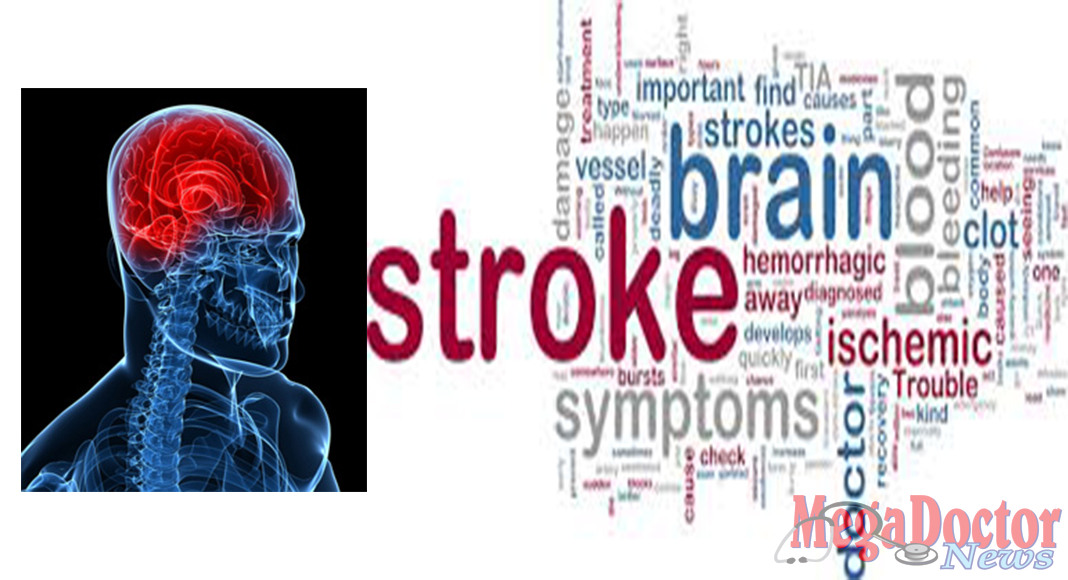
Mega Doctor News
HARLINGEN – As May serving as Stroke Awareness Month continues, Valley Baptist Health System is encouraging the community to learn more about the signs, symptoms and treatment of stroke.
Stroke is a type of cardiovascular disease which affects the arteries leading to the brain and the arteries within the brain. A stroke occurs when a blood vessel that carries oxygen and nutrients to the brain is either blocked by a clot or bursts. When that happens, part of the brain cannot get the blood (and oxygen) it needs, and that part of the brain starts to die.
According to the American Heart Association/American Stroke Association, only eight percent of Americans can identify what each letter stands for in the “F.A.S.T.” acronym, which reminds people what to look for when it comes to a possible stroke:
“F” is for FACE: Ask the person to smile. Does one side of the face droop?
“A” is for ARMS: Ask the person to raise both arms. Does one arm drift downward?
“S” is for SPEECH: Ask the person to repeat a simple phrase. Is their speech slurred or strange?
“T” is for TIME: If you observe any of these signs, call 9-1-1 immediately. Also note the time that symptoms of stroke first started; that will be important information to give to the medical professionals who treat the stroke victim.
Many hospitals and organizations are even adopting a new acronym, BE FAST. Recognizing that balance issues (B) and blurred vision (E for eyes) can also be important signs of stroke, they have been added, encouraging everyone to BE FAST should they have any of the signs and symptoms of stroke.
Dr. Wondwossen Tekle, Director of Stroke and Neurocritical Care at Valley Baptist Medical Center-Harlingen, said it is critical for Valley residents to learn these warning signs of stroke — and to call 911 immediately if they or a loved one has symptoms of stroke.
“It’s important to recognize these signs that a stroke is happening, because you can save a life,” he said. “The point to remember is that ‘time equals brain’. A delay of even five or 10 minutes can make a big difference in the patient’s outcome.”
Tekle said it can be especially important for women to be aware of the signs and symptoms of stroke, as each year more women die from stroke than men, and stroke is the fourth leading cause of death for women, compared to the fifth leading cause of death for men, according to information from the Centers for Disease Control and Prevention. Stroke is also a leading cause of serious, long-term disability in the United States, according to information from the American Heart Association/American Stroke Association.
At Valley Baptist Medical Center in Harlingen and Brownsville, a “clot-busting” medication called tPA is used when medically indicated to reverse strokes – but in most cases the medication must be given within three hours from the start of symptoms of a possible stroke.
Valley Baptist-Harlingen, which remains the first and only Certified Comprehensive Stroke Center in the Valley and south of San Antonio, also offers endovascular stroke procedures, during which blood clots are extracted by specially-trained “endovascular” neurologists, using tiny mechanical devices which are inserted into the blood vessels through thin catheters or tubes. These procedures can increase the time window for stroke treatment – but it is still critical for residents to call 911 immediately.
Dr. Ameer E. Hassan, DO, FAHA, FSVIN, Head of the Neuroscience Department, Director of Endovascular Surgical Neuroradiology and Director of Clinical Neuroscience Research at Valley Baptist Medical Center-Harlingen, said that improved communication among peers and continued education in the community could have a positive impact on patient care and outcomes, pointing to recent improvements in the Valley in treating stroke patients.
“What we’ve done in the Valley, in terms of increasing our IV-tpA numbers from 3 percent to 13 percent in a matter of a few years, and increasing the treatment, whether it be endovascular or IV-tpA, from 3 percent of patients to 25 percent, is amazing,” he said. “That’s happened because we’ve worked well with the community. We’ve focused on educating the community and first responders as well as local EMS. This is an exciting time for the treatment of stroke – and very relevant to the Valley, since we have so many people at risk for stroke, because so many people have high blood pressure and/or diabetes – and/or a high-cholesterol, high-fat diet.”
Survivors of stroke, along with their family members and caregivers, can receive additional information and support during free H.O.P.E. (Haven Offering Patient Encouragement) Stroke Support Group meetings, which are held monthly at Valley Baptist-Harlingen. For more information about the Stroke Support Group, contact Erlinda Abantao at Erlinda.Abantao@valleybaptist.net, or call (888) 902-5433 (LIFE)












